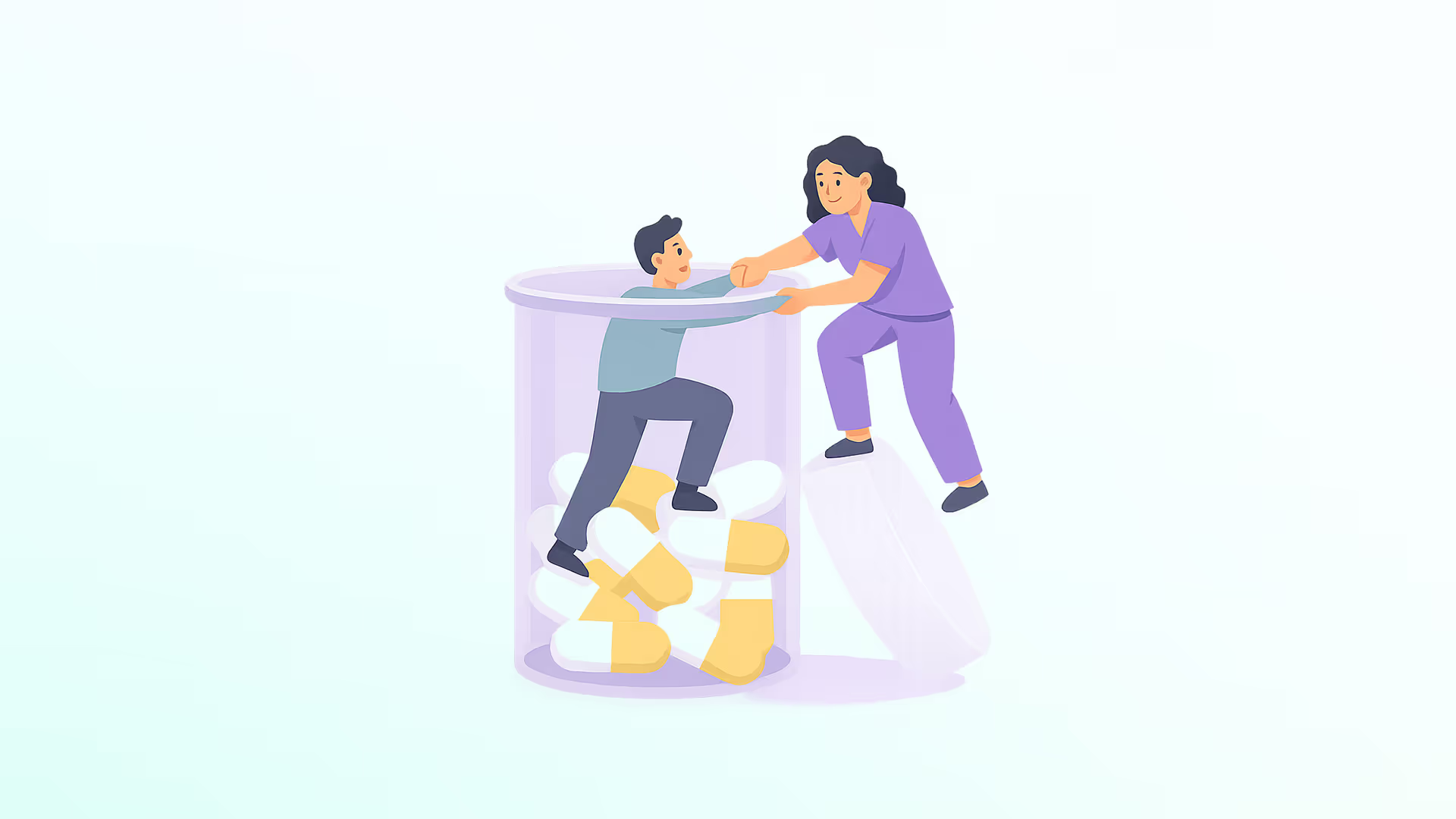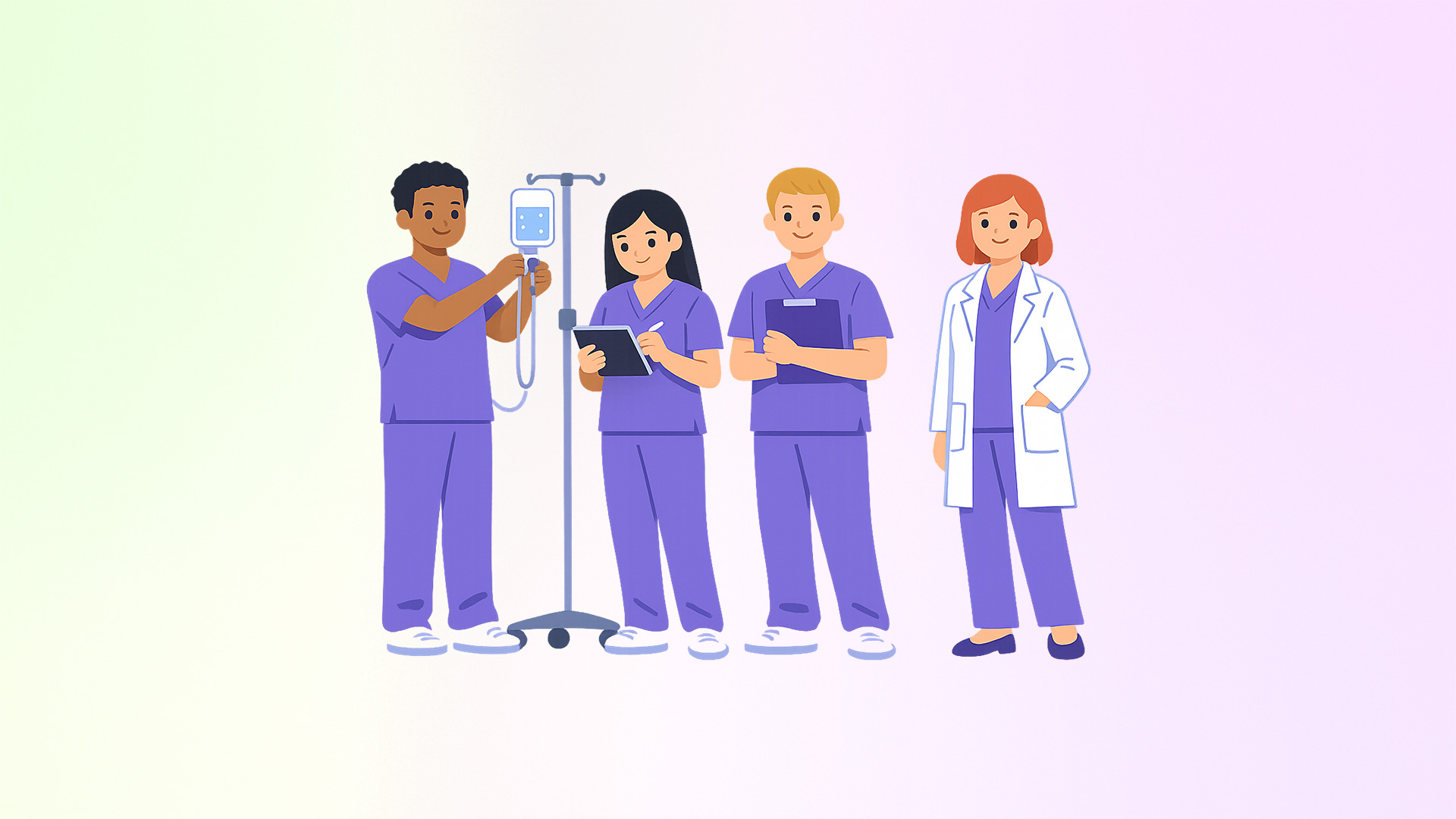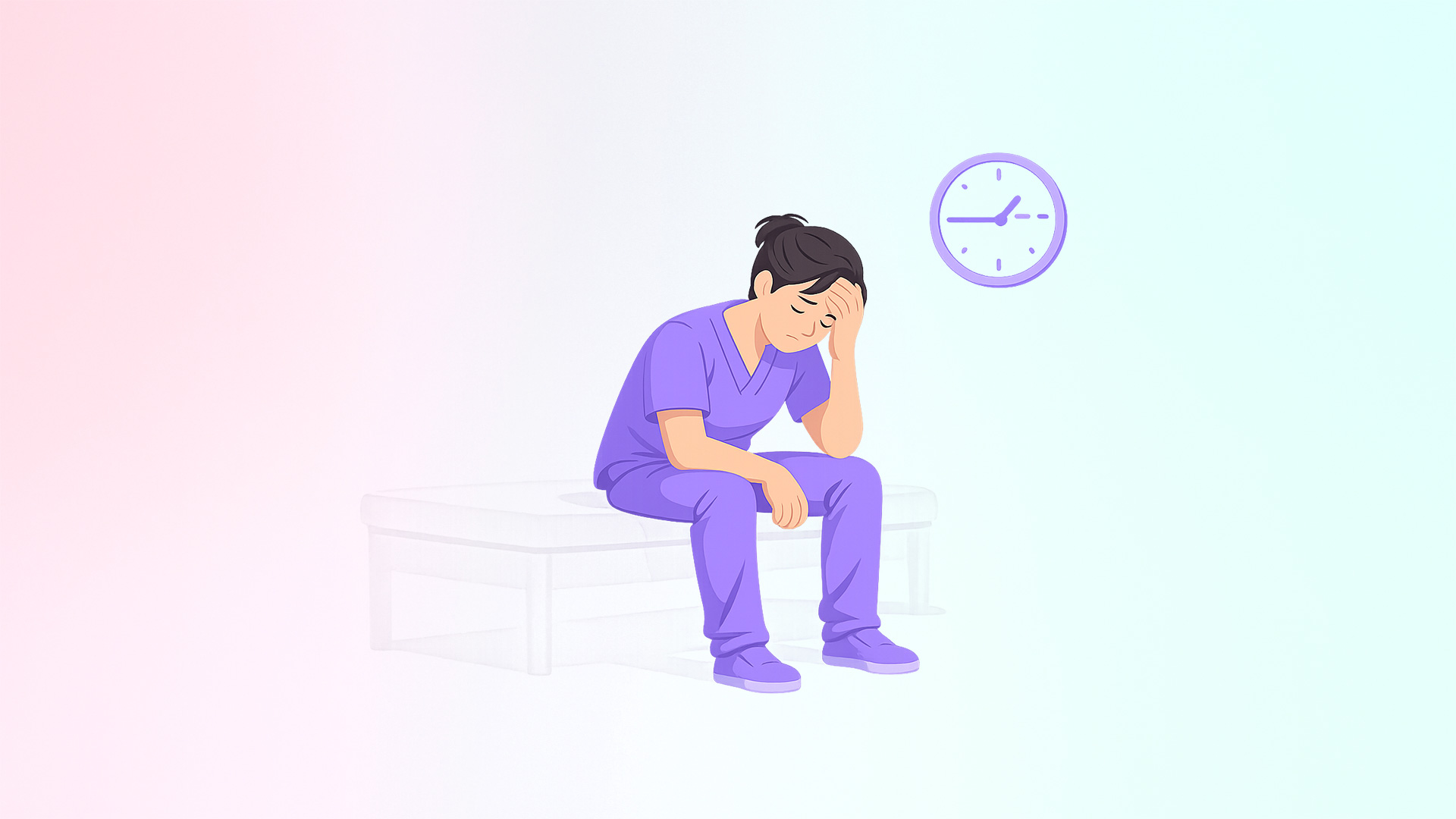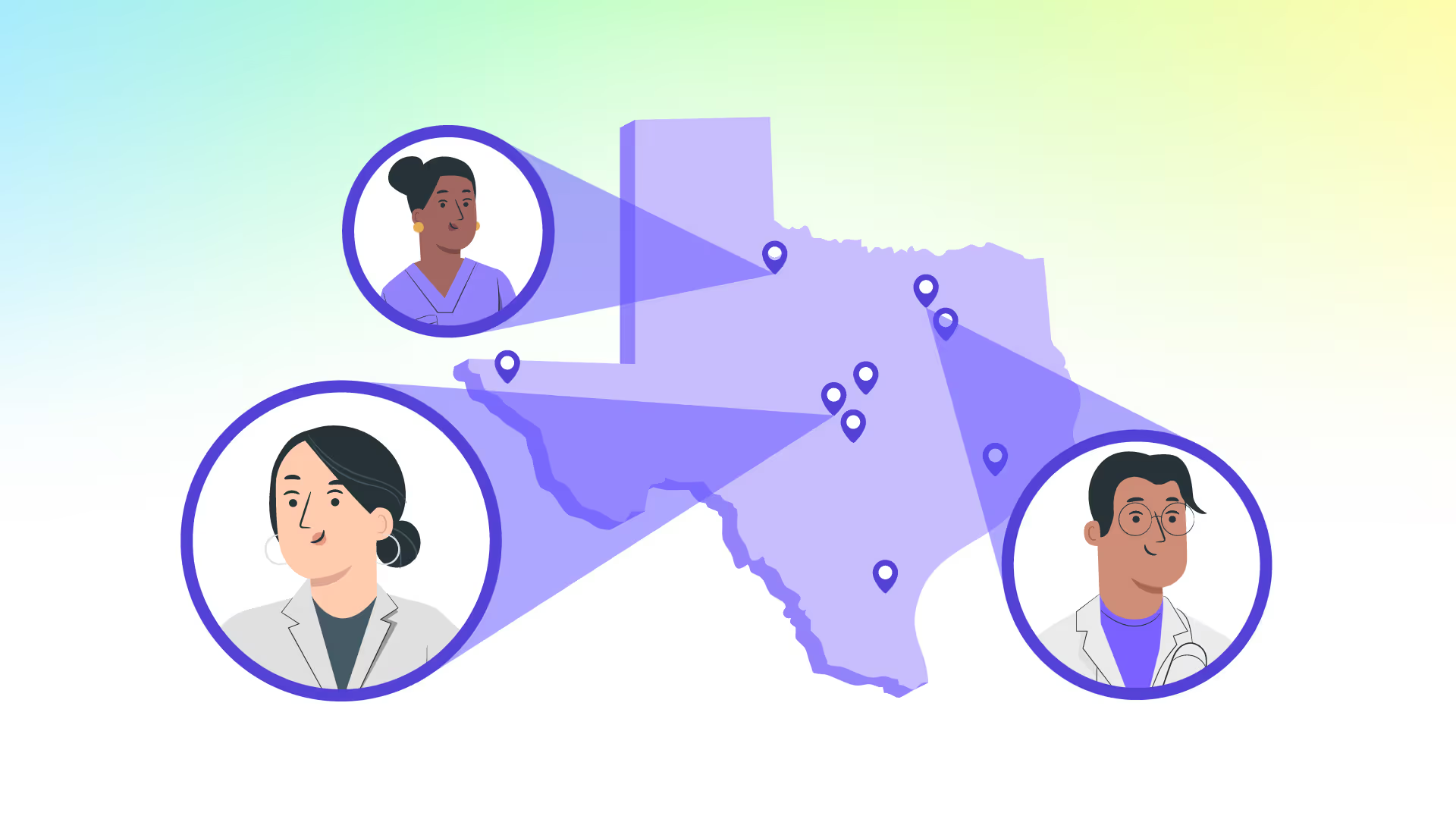An addiction psychiatry preceptor is a licensed clinician who supervises NP students during rotations in substance use treatment, helping them gain real-world experience in managing substance use disorders, prescribing medication-assisted treatment (MAT), and supporting recovery. These rotations are essential for graduation and certification, allowing students to build practical skills in psychiatric evaluation, withdrawal management, relapse prevention, and patient care across detox, inpatient, and outpatient settings.
TL;DR – Addiction Psychiatry Preceptors for NP Students
- Addiction psychiatry rotations give NP students hands-on experience treating substance use disorders, including opioid dependence, alcohol use disorder, and dual diagnoses.
- With a severe shortage of addiction psychiatrists, PMHNPs and NP students play a critical role in expanding access to addiction treatment across detox, inpatient, and outpatient settings.
- During these rotations, students build skills in MAT prescribing, withdrawal management, motivational interviewing, group therapy, and relapse prevention.
- Finding an addiction psychiatry preceptor on your own is difficult—most clinics don’t advertise student slots, and red flags like unqualified preceptors or missing paperwork can waste months.
- NPHub connects NP students with vetted addiction psychiatry preceptors, handles logistics, and ensures clinical hours count—so you can create your free account today and secure the rotation that prepares you for practice.
The Growing Need for Addiction Psychiatry Training
Addiction isn’t just a headline, it’s a daily reality that touches every community in America. The numbers tell a story of crisis, but behind each statistic is a person struggling, a family holding on, and a community deeply affected by substance use disorders:
- 47.7 million Americans aged 12 and older are current illegal drug users (past 30 days).
- 70.5 million people have used illegal drugs or misused prescription drugs in the past year.
- 134.7 million people drank alcohol in the past month, with 28.9 million living with alcohol use disorder.
- 5.9 million Americans qualify as having an opioid use disorder, 90% of them misusing prescription pain relievers.
- More than 107,000 overdose deaths occurred in 2022, making drug overdose a leading cause of death for people under 45.
These statistics represent real lives interrupted by addiction, families navigating stigma, and communities stretched thin trying to respond.
And yet, the providers trained to deliver addiction treatment remain in short supply. With so few addiction psychiatrists and specialists available, the responsibility increasingly falls to nurse practitioners, especially PMHNP students preparing for rotations in addiction psychiatry.
For NP students, these rotations are more than a graduation requirement. They’re a chance to learn how to treat addiction as a chronic brain disease, use evidence-based approaches like medication-assisted treatment (MAT), and support recovery through psychotherapy, group therapy, and relapse prevention.
This is where students prepare not just to pass a program, but to step into one of the most urgent public health challenges of our time. If you’re starting the search for an addiction psychiatry preceptor, you can create your free NPHub account to begin exploring options and move forward with confidence.
The Role of PMHNPs as Addiction Psychiatrists in Substance Use Treatment
With the nationwide shortage of addiction psychiatrists, PMHNPs are stepping into a critical role in addiction psychiatry and substance abuse treatment.
As frontline providers, PMHNPs are uniquely positioned to bridge the gap in care for patients living with substance use disorders, mental illness, and other addictive disorders.
What sets nurse practitioners apart is their approachability. Research shows patients often view NPs as more empathetic and accessible than doctors and in addiction treatment, this matters deeply as many individuals in recovery carry shame, fear, and anxiety.
By building trust, NPs create safe spaces where patients can be open about their struggles with drug dependence, alcohol use, or behavioral addictions, which makes diagnosis and care more accurate and effective.
In clinical practice, PMHNPs contribute to addiction care in several essential ways:
- Medication-Assisted Treatment (MAT): For patients facing severe withdrawal, NPs can prescribe and manage medications like buprenorphine, naltrexone, or methadone. This evidence-based approach treats addiction as a chronic brain disease and helps patients avoid relapse while stabilizing recovery.
- Community-Based Care: NPs often serve in rural or underserved areas where doctors are scarce. Their presence brings addiction medicine and psychiatric care to communities that might otherwise go without.
- Consistent Patient Presence: While doctors may only see patients briefly, NPs often build ongoing relationships. That consistency allows them to notice changes, provide tailored treatment approaches, and support long-term recovery.
- Therapy and Counseling: Many NPs provide psychotherapy alongside medical treatment, using modalities like CBT or trauma therapy to help patients build healthier coping mechanisms.
- Collaboration with Support Systems: PMHNPs often work with group therapy programs, self-help groups like Alcoholics Anonymous, and community human services to create a comprehensive support network for recovery.
PMHNPs also play a central role across levels of addiction treatment services:
- Detox programs where patients withdraw safely under medical supervision.
- Inpatient rehab clinics that offer 24/7 care, structure, and education about the drug effects on the brain.
- Outpatient programs where patients receive consistent monitoring while continuing daily life.
Through these settings, PMHNPs gain expertise in addiction psychiatry preceptors rotations, working alongside clinicians in both public and private sectors.
These experiences prepare students not just to treat addiction, but to understand it as a complex interaction of biology, psychology, and social context, a perspective supported by the Diagnostic and Statistical Manual (DSM) and the academy of addiction psychiatry as the gold standard in defining substance use disorders.
For NP students, rotations in this specialty are a chance to learn what textbooks can’t fully capture: how to connect with patients, address psychiatric problems linked to addiction, and step into leadership positions within behavioral health.
If you’re ready to start exploring detox centers, inpatient rehabs, or outpatient clinics where addiction psychiatry preceptors can guide your learning, you can create your free NPHub account and take the first step toward finding a rotation that aligns with your specialty and your goals.
Why Addiction Psychiatry Preceptors Matter for PMHNP Students
For NP students rotations in addiction psychiatry give exposure to substance use disorders, drug abuse, alcohol dependence, and behavioral addictions, helping them see firsthand the complexity of care that textbooks and lectures can’t fully capture.
During an addiction psychiatry preceptor rotation, students build skills that shape their long-term clinical practice:
- Patient Assessments & Screenings: Like substance abuse nurses, NP students learn how to conduct thorough evaluations at intake, identify co-occurring mental disorders, and monitor progress throughout treatment.
- Developing Treatment Approaches: You’ll practice building individualized care plans that integrate medication, psychotherapy, and group therapy, strategies recognized as gold standards by the academy of addiction psychiatry and the national institute on drug abuse.
- Medication Management: Under supervision, you’ll gain confidence in medication-assisted treatment, prescribing and adjusting medications to support recovery and reduce withdrawal.
- Family & Caregiver Education: Just as addiction nurses provide education, NP students learn how to counsel patients and their loved ones about the dangers of substance abuse and the importance of continued treatment.
- Emotional Support: Rotations prepare you to provide more than prescriptions—you’ll practice offering empathy, leading self-help groups or support sessions, and connecting patients to community resources like Alcoholics Anonymous.
Exposure across multiple treatment settings makes these rotations especially valuable:
- In detox programs, you’ll learn to manage withdrawal safely.
- In inpatient rehab, you’ll gain experience in long-term recovery planning, relapse prevention, and intensive psychotherapy.
- In outpatient programs, you’ll develop the ability to balance medical oversight with patient independence, a skill critical for treating addiction in real life.
Perhaps most importantly, addiction psychiatry rotations help NP students break down stigma. By working with patients daily, you see addiction not as a moral failing but as a medical subspecialty that requires expertise, compassion, and persistence.
These experiences prepare you not only for your PMHNP-BC certification but also for leadership positions in behavioral health, human services, and addiction medicine.
With the right addiction psychiatry preceptor, your rotation becomes more than a step toward graduation, it becomes the foundation for your career in psychiatry, mental health, and patient care.
Don’t risk losing months of progress to unanswered emails or sites that won’t be approved. Create your free NPHub account secure a preceptor who will help you graduate on time, build confidence in your clinical practice, and prepare you to step into leadership roles in addiction medicine.
DIY Approach the Addiction Psychiatry Preceptor Search
You can study every page of the Diagnostic and Statistical Manual (DSM) and still hit the same wall most students face: actually finding an addiction psychiatry preceptor.
Most addiction psychiatrists and addiction medicine providers don’t openly advertise student opportunities, leaving NP students chasing cold calls, unanswered emails, and endless paperwork with little to show for it. Add in compliance requirements, DEA considerations, and school approvals, and it’s no wonder so many rotations are delayed.
Still, if you’re determined to find a preceptor on your own, there are strategies that can make the process more effective.
5 Tips for Finding an Addiction Psychiatry Preceptor
1. Leverage your school’s network.
- Ask faculty members, clinical coordinators, and recent graduates if they know addiction psychiatrists or PMHNP preceptors who have taken students before.
- Alumni connections can be surprisingly effective—former students often know which sites are student-friendly.
- Don’t underestimate the power of word-of-mouth; sometimes the fastest way to a rotation is simply asking the right person at the right time.
2. Target MAT-certified providers.
- Look for clinics or providers already approved to prescribe medication-assisted treatment (MAT), such as buprenorphine or naltrexone.
- These settings are usually more structured and open to learners, since MAT is considered a gold standard in addiction medicine.
- If you want hands-on experience in the evidence-based standard of care, MAT providers should be at the top of your outreach list.
3. Explore outpatient programs.
- Outpatient addiction clinics may be more flexible than inpatient rehabs when it comes to scheduling and paperwork.
- They also give you valuable experience managing recovery in real-world contexts where patients balance treatment with daily life.
- Outpatient settings teach you how to treat addiction where it actually happens—in the context of patients’ everyday lives.
4. Show up prepared.
- Have your CV, liability insurance, official school paperwork, and clinical hour requirements ready to share.
- A professional approach signals reliability and sets you apart from students who send vague requests.
- Think of it like a job interview, being organized could be the difference between a “no” and a “yes.”
5. Stay persistent and organized.
- Expect more “no’s” than “yeses.” Track your outreach in a spreadsheet with follow-up dates.
- Sometimes it takes a second or third email to get a response—professional persistence pays off.
- Consistency shows commitment; the student who keeps following up is often the one who finally gets the placement.
Red Flags to Watch for in the Preceptor Search
Cash-only requests
- If a provider asks for payment upfront without involving your school or providing documentation, that’s a sign of a scam.
- If it feels risky or bypasses your program, walk away—it’s not worth losing your hours or your money.
Lack of paperwork
- Every valid placement requires contracts, site agreements, or official approval. If a clinic avoids this, your hours may be rejected later.
- No paperwork, no placement, always protect yourself by ensuring everything is documented.
Unqualified preceptors
- Verify that your preceptor is licensed and credentialed to supervise NP students in addiction psychiatry or addiction medicine.
- A rotation without proper supervision can cost you your clinical hours and leave you unprepared for practice.
Mismatch with program requirements
- If the site doesn’t provide the right type of hours (e.g., no psychiatric evaluations, no MAT prescribing), your school may not accept it.
- Always double-check with your coordinator—better to confirm now than lose credit later.
No clear supervision plan
- A strong preceptor should provide consistent oversight, feedback, and mentorship. If expectations are vague, your experience will suffer.
- Without guidance, you’re just shadowing, not truly learning, so prioritize preceptors who invest in your growth.
DIY searching can teach you resilience, but it often comes at a cost. Students pour hours into outreach, only to hit dead ends or discover too late that their site doesn’t qualify.
The stress piles up, missed deadlines, extra tuition, and the constant fear of falling behind classmates who already have placements lined up. The truth is, finding an addiction psychiatry preceptor shouldn’t feel like a second full-time job.
You deserve to focus on learning how to treat patients, not chasing paperwork. That’s why more NP students are choosing NPHub, a platform that lets you search vetted preceptors, handles the logistics, and keeps you on track for graduation. You can create your free account and finally move past the search into the rotation that will shape your career.
A Smarter Way to Find Addiction Psychiatry Preceptors
After weeks of unanswered emails, rejection calls, and endless spreadsheets, many NP students realize the real barrier isn’t their effort, it’s the system itself.
Addiction psychiatrists rarely advertise student slots, many clinics aren’t equipped to onboard learners, and even when you find a willing provider, the paperwork and site approvals can drag on for months.
The outcome is predictable: mounting stress, missed deadlines, added tuition costs, and in some cases, delayed graduation.
That’s why more students are turning to NPHub and instead of wasting time chasing leads, they can step directly into a rotation that’s already confirmed to meet your school’s requirements and prepare you for practice.
Here’s how NPHub makes the process different:
- Vetted addiction psychiatry preceptors: Every preceptor is licensed, qualified, and willing to mentor NP students in substance use treatment.
- Rotations that count: We verify your site and preceptor with your school from the beginning, so you don’t risk losing hours.
- Logistics handled for you: Site agreements, liability insurance, and compliance paperwork are managed by our team.
- Diverse settings to choose from: Detox centers, inpatient rehabs, outpatient programs—you get placed where you’ll build the most meaningful experience.
- Confidence and peace of mind: Instead of worrying about approvals or delays, you can focus entirely on becoming a skilled, compassionate provider.
With substance use disorders impacting millions of lives and overdose deaths still climbing, the demand for providers trained in addiction treatment has never been greater.
As a PMHNP student, these rotations are where you’ll develop the skills that define your practice, you won’t just learn how to treat addiction, you’ll learn how to lead with empathy, reduce stigma, and change lives.
If you’re ready to stop stressing over the search and start building your career in addiction psychiatry, you can create your free NPHub account, get matched with a preceptor who will guide you every step of the way and take the first step to securing your clinicals, your graduation and your future as an NP.
Frequently Asked Questions: Addiction Psychiatry Preceptors: Completing Clinicals in Substance Use Treatment
1. What makes addiction psychiatry rotations different from general psychiatry?
Addiction psychiatry focuses specifically on substance use disorders and co-occurring conditions like depression, anxiety, and trauma. While general psychiatry rotations cover broad mental health care, addiction psychiatry exposes you to MAT prescribing, withdrawal management, relapse prevention, and patient recovery planning.
2. Do I need a DEA license to participate in an addiction psychiatry rotation?
No. As a student, you’ll work under your preceptor’s supervision. They are the licensed provider with DEA authority. However, you’ll gain hands-on experience with controlled substances used in addiction treatment, preparing you for licensure and certification.
3. Can NP students prescribe buprenorphine or methadone during clinicals?
Not independently. You’ll participate in medication-assisted treatment (MAT) under the direct supervision of your preceptor. This allows you to learn safe prescribing practices, patient monitoring, and dosage adjustments while meeting clinical practice requirements.
4. Where do addiction psychiatry rotations typically take place?
Settings include detox centers, inpatient rehab facilities, outpatient addiction clinics, community health centers, and dual-diagnosis programs. Each offers unique exposure—from managing acute withdrawal to supporting patients in long-term recovery.
5. How do addiction psychiatry preceptors evaluate students?
Preceptors assess your ability to conduct psychiatric evaluations, build rapport, recognize signs of drug dependence, document accurately, and collaborate in treatment planning. Many also observe your communication skills with patients, caregivers, and interdisciplinary teams.
6. What therapies and treatment approaches will I be exposed to?
Most students observe and practice cognitive behavioral therapy (CBT), motivational interviewing, relapse prevention planning, trauma therapy, and group therapy models like Alcoholics Anonymous. This ensures you’re prepared for diverse patient needs.
7. How do addiction psychiatry rotations prepare me for leadership positions?
They develop your ability to manage complex psychiatric problems, public health concerns, and patient care systems. Exposure to high-need populations equips you with the skills to advocate for policy change, lead clinical teams, and guide community-based treatment programs.
8. What’s the biggest challenge students face in these rotations?
The stigma surrounding substance abuse can create barriers in patient trust and provider attitudes. Learning to treat addiction as a chronic brain disease—not a moral failing—is one of the most important lessons students take from these experiences.
9. Are addiction psychiatry rotations recognized for PMHNP certification?
Yes. As long as the preceptor and site meet your program’s criteria, your hours count toward graduation and PMHNP-BC certification. Always confirm with your school before starting a rotation to avoid setbacks.
10. How can NPHub help me secure an addiction psychiatry preceptor?
Instead of spending months cold-calling clinics, NPHub connects you with vetted addiction psychiatry preceptors who are ready to teach. We verify school compliance, handle paperwork, and ensure your hours are protected—so you can focus on gaining the skills to treat addiction with confidence.
Key Definitions: Addiction Psychiatry Rotations and Clinical Practice
- Addiction Psychiatry Preceptor
A licensed clinician, such as an addiction psychiatrist or PMHNP, who supervises NP students during rotations in substance use treatment and ensures they meet academic and licensure requirements. - Medication-Assisted Treatment (MAT)
An evidence-based approach that combines medications like buprenorphine, methadone, or naltrexone with counseling and behavioral therapies to support recovery from opioid and alcohol use disorders. - Withdrawal Management
The medical process of helping patients safely reduce or stop substance use while monitoring and treating symptoms of withdrawal. This is a critical skill developed in detox settings. - Dual Diagnosis
When a patient has both a substance use disorder and another mental health condition, such as depression or anxiety. Addiction psychiatry rotations prepare students to treat these complex cases. - Motivational Interviewing (MI)
A counseling technique often used in addiction medicine that encourages patients to explore and resolve ambivalence about recovery. NP students frequently practice MI during their rotations. - Relapse Prevention
A structured strategy that helps patients identify triggers, build coping mechanisms, and stay engaged in treatment to avoid returning to substance use. - Group Therapy
A treatment approach in which patients share experiences and support each other under professional guidance. Common in addiction psychiatry rotations, it includes models like Alcoholics Anonymous (AA) or structured CBT groups. - Harm Reduction
A public health approach that focuses on minimizing the negative effects of substance use, such as providing safe injection sites or naloxone access, rather than insisting on immediate abstinence. - Detoxification (Detox)
A supervised medical process that allows patients to clear substances from their system while reducing the risks of complications. NP students in detox centers gain hands-on experience managing acute crises. - Addiction Medicine
A recognized medical subspecialty focused on diagnosing, treating, and preventing substance use disorders. Addiction psychiatry overlaps with this field, but emphasizes psychiatric care alongside medical interventions.
About the author
- NPHub Staff
At NPHub, we live and breathe clinical placements. Our team is made up of nurse practitioners, clinical coordinators, placement advisors, and former students who’ve been through the process themselves. We work directly with NP students across the country to help them secure high-quality preceptorships and graduate on time with confidence. - Last updated
October 2, 2025 - Fact-checked by
NPHub Clinical Placement Experts & Student Support Team - Sources and references
Find a preceptor who cares with NPHub
Book a rotation.webp)








.webp)


.webp)



%20(3)%20(2).svg)
.webp)